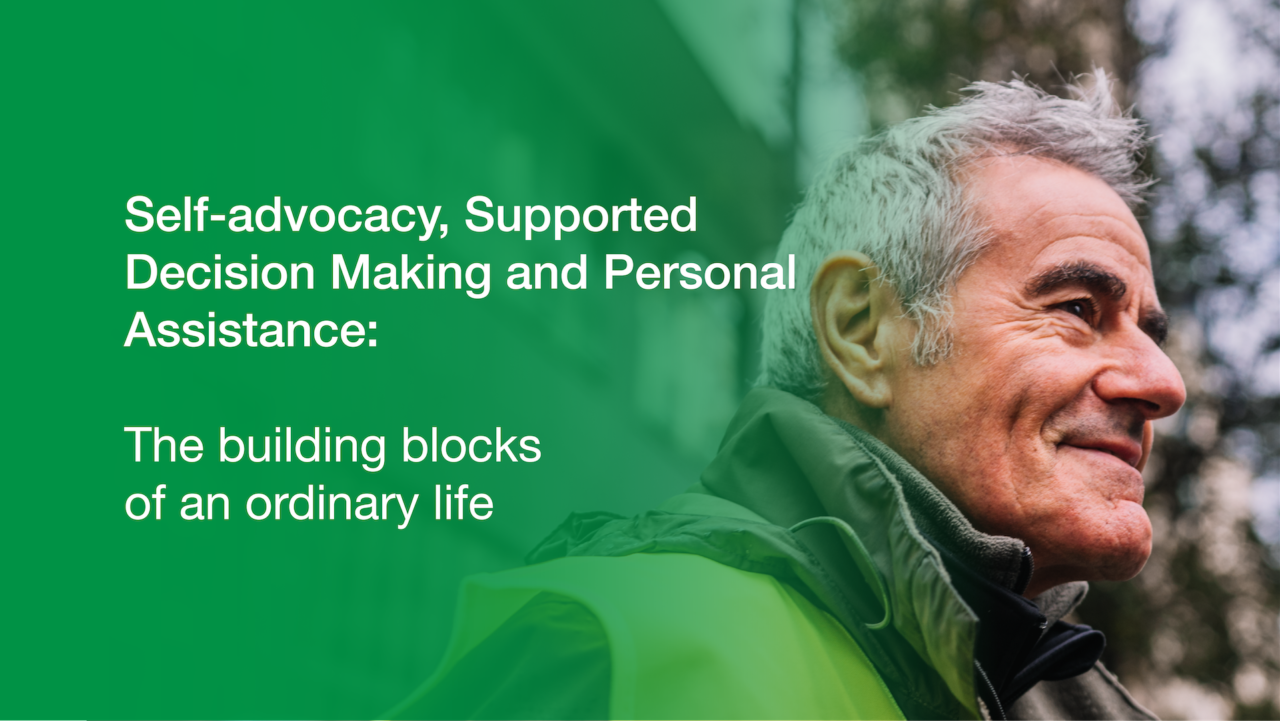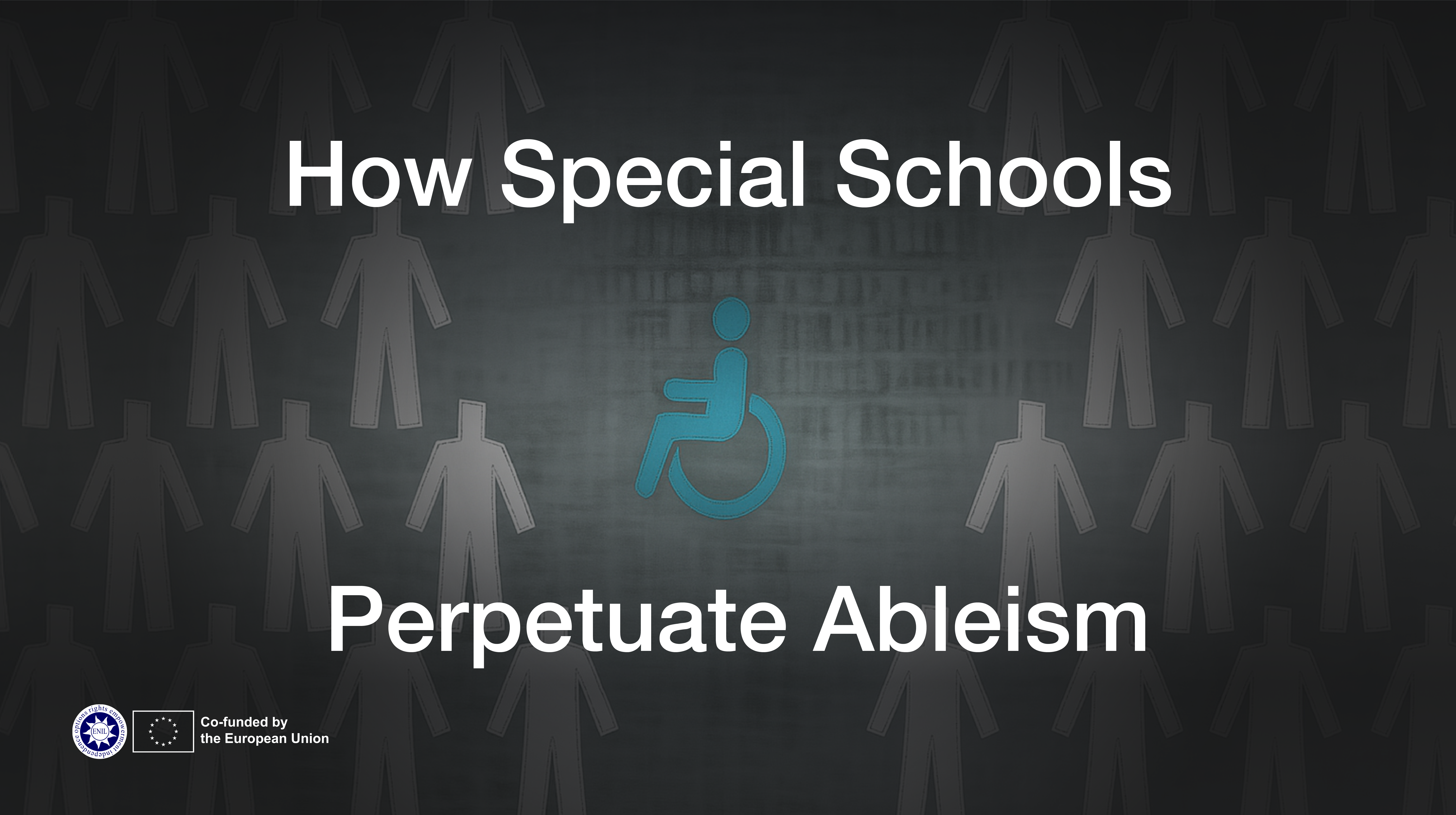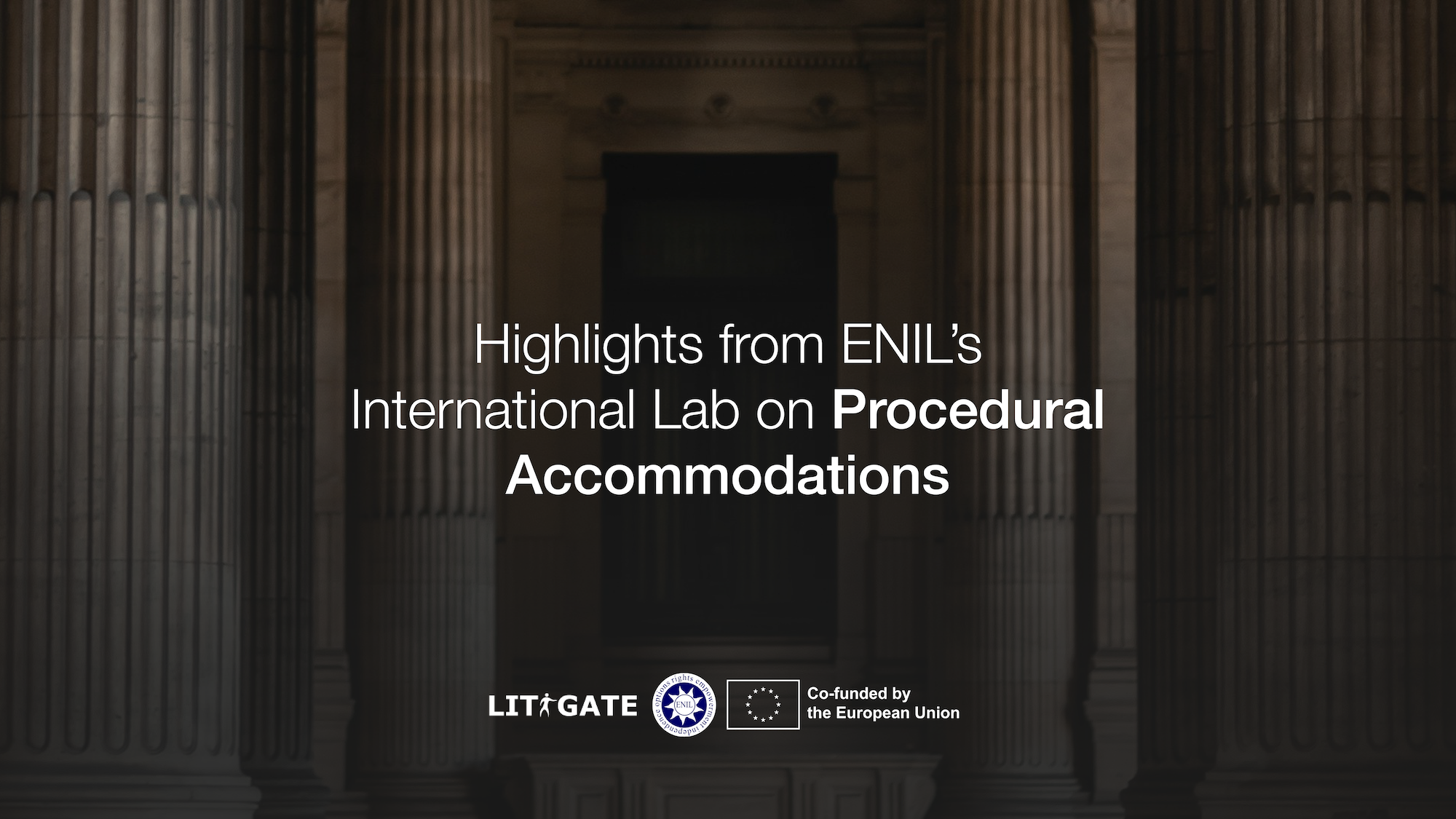On 27 October, ENIL held the next in the series of webinars on deinstitutionalisation, organised in the framework of the European Coalition for Community Living. The webinar was moderated by Ines Bulić Cojocariu (ENIL) and Nic Crosby (the National Development Team for Inclusion UK). Close to 40 participants joined the webinar.
Disability Rights Advocate’s Experiences and Perspectives
Fionn Crombie Angus, a 27-year-old disability rights advocate from Galway, Ireland and the European Solidarity Corps volunteer at ENIL, shared his personal experiences and perspectives on disability rights. He highlighted the importance of the right to live independently, as stated in Article 19 CRPD. Fionn also emphasized the need to combat societal biases against people with disabilities and to support their participation in cultural and social life. He advocated for change in societal views and mentioned his work on various campaigns, including ‘Stay up late’, ‘No bedtime’ and ‘Gig Buddies’. Fionn also shared his personal interests and travel experiences and encouraged others to reach out to him for further discussions.
Fionn discussed the challenges faced by people with intellectual disabilities in residential care or group homes and their lack of freedom to engage in leisure, including staying up late. He introduced Gig Buddies, a volunteer program that provides companions for individuals with intellectual disabilities who want to attend gigs. Fionn also emphasized the importance of housing and the right to enjoy nightlife. Participants discussed Fionn’s work and his popular Instagram profile. One of the participants expressed her admiration for Fionn’s content and asked about his strategy for reaching out to those who might not initially be interested in disability rights. Fionn explained his approach of incorporating important messages into humorous content. Participants agreed to collaborate further to share Fionn’s message and content across different countries and languages.
Supported Decision Making
Kristin Torske, from ULOBA – Independent Living Norway, discussed a project related to supported decision making for persons with disabilities. She highlighted that while everyone seeks decision support in their daily lives, some individuals may require a more formalized form of it to exercise their self-determination. However, in Norway, there is a lack of legislation and systems for supported decision making. Kristin emphasized the need for a new legislation that upholds the rights to supported decision making, as guardianship is a barrier to self-determination. Kristin spoke about ULOBA’s pilot project inspired by the ‘micro Board’ model from Canada, which enables disabled individuals to receive individually adapted support from a small Board of close persons. The project is currently in the process of being scaled up. (For more information, download the report.)
Kristin discussed the project’s decision to name their system the Supported Decision Making Board, often referred to as the Board. She mentioned that the project involved 10 participants with disabilities who wanted to test the system. Each participant became the Board owner of their own Board and chose people they knew and trusted to be on the Board with them. Some Board owners had help choosing their Board members, who were tasked with helping the Board owner make decisions about their life. Kristin highlighted that the Board owners should take part in the meetings if they want to and are able to. She also mentioned that the Board members were not paid, had a duty of confidentiality, and that many Boards had 5 members. Kristin stressed that it’s important for the Board owner and members to know and trust each other. She mentioned that they have learned a lot from the project about important factors to consider when setting up a supported decision making Board.
A participant from Malta asked about the involvement of professionals such as psychiatrists or psychologists in these Boards and if they were exclusively family systems. Kristin clarified that being a Board member relied on the relationship with the Board owner and that if a professional was chosen because of their relationship with the person with disabilities, they could utilize their expertise. However, a Board does not have to involve professionals.
Participants further discussed independent living and decision-making support for individuals with disabilities. The importance of a referential group in providing feedback on self-determination and human rights was highlighted by Kristin. A participant voiced concerns about parental resistance to independent living and asked how to get them on board. Participants also discussed decision-making within the Board. The topic of making decisions freely or having decisions made for them by the Board was raised by a participant, and Kristin stressed that attention needs to paid to prevent this.
Participants also discussed the role and decision-making capabilities of a Board in relation to individual needs and preferences. Kristin stressed the importance of ensuring Board members understand the Board owner’s preferences and avoid overruling them. A participant shared her experiences in Australia, expressing concerns about dependency on officials’ goodwill and the challenges of understanding individual preferences. Kristin acknowledged these concerns and emphasized the need for a paradigm shift in how disabled people are viewed in Norway. She also emphasized the need for a more decentralized system that allows for greater access to information and decision-making, with the level of detail shared dependent on the Board owner’s needs and preferences. A participant raised concerns about the handling of sensitive information in the decision-making process, to which Kristin acknowledged the importance of privacy and ensuring that the right information is shared with the right people.
Handbook on Personal Assistance
Ines introduced colleagues from Slovenia who presented their ‘Personal Assistance’ handbook, originally published by YHD in Slovenian in 2000 and translated to English last year. Domen Retelj, from YHD, elaborated on personal assistance, highlighting the importance of conducting effective interviews, setting boundaries, and maintaining professional relationships.
Domen discussed the updates made to the English version of the Handbook, including the addition of footnotes providing specific information not generally known to the public. Elena Pečarič, also from YHD, expressed gratitude for the assistance they received in protesting for independence and highlighted the diverse experiences and perspectives shared in the Handbook. Klaudija Poropat added that the history of independent living in Slovenia was an important aspect included in the Handbook. (To download the Handbook, please click here.)
Klaudija discussed the misinterpretation of personal assistance as a care service, emphasizing the importance of autonomy and independent decision making. She, along with Elena, stressed the need for individuals to learn from their own experiences and not solely rely on service providers. The importance of not relying on medical diagnoses but evaluating each individual based on their specific needs was also highlighted. Klaudija and Elena discussed their ongoing work following the adoption of a law on personal assistance in Slovenia. The challenges of assessing the needs for personal assistance services for disabled individuals were discussed, including the current system’s reliance on disabled individuals evaluating other peers, when many have no knowledge of independent living. The lack of additional services to support independent living in Slovenia was also noted. Elena and a participant shared their experiences working in independent living centers. The Convention of the Rights of People with Disabilities was identified as a guiding principle for their work.
In case you missed the webinar, you can watch the recording here.



